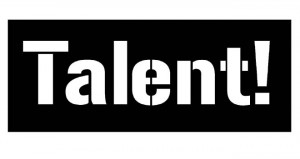Last week we reported that Facebook is in advanced talks to buy Israel-born social traffic and mapping app Waze for up to $1 billion, but that there were still some questions over whether Waze’s R&D efforts would remain in their home country, or move to Facebook’s HQ in California. Haaretz has now advanced the story, saying that the current deal has it that Waze’s R&D will stay in Israel, where it will also continue to be a registered, tax-paying company, while Waze’s Palo Alto office will move over to Facebook and Menlo Park. While reports are now swirling that Apple could still come into the negotiating room again (if you believe Apple was ever there in the first place), the deal raises some interesting details and debate about what is happening in the Israeli startup scene currently.
Consumer apps
In a country more renowned for its B2B and technical exits — Cisco’s $5 billion NDS deal being one example from last year, but so are Facebook’s two previous Israeli acquisitions, feature phone interface designer Snaptu and facial recognition company Face.com — this is one of the first big consumer tech exits in Israel. Yaron Samid, founder of the Israeli tech startup network TechAviv and himself a serial entrepreneur, notes that this is in fact the first $1 billion exit for such a company. Waze’s rapid rise over the last couple of years, he notes, has already been having an impact on the community, with the exit being the final flourish.
“The inspiration has already taken hold like wildfire among the countless Israeli founders who’ve been told that they can’t produce a billion-dollar consumer Internet/Mobile company – and now know that they all can,” he writes. (He also takes the opportunity for a little self promotion, claiming that he’d been one of those suggesting current CEO Noam Bardin after he couldn’t take the job himself.)
There are numerous Israeli Startups that could get a lift from the ‘new order’ where consumer startups, not just B2B and enterprise, can emerge from the country. These could include Wix, GetTaxi, Fiverr, Bizzabo, MyHeritage, Wishi and Mobli, among others.
Facebook Israel foothold
The other interesting development here is that this could give Facebook a foothold into the Israeli tech world. Unlike Google, Facebook does not have an operation in Israel, which could well create useful ‘boots on the ground’ in a nation renowned for its engineering talent. This would make it the second Facebook development arm outside the U.S., after London.
But the suggestion so far is that Waze will remain an independent company operating in Israel, with R&D staying in Israel, while the business side, including CEO Noam Bardin, is expected to move over to Facebook U.S. HQ.
But, there is a cultural clash on the horizon here.
Some local players are already coming out against this idea. Local VC and TechCrunch contributor Roi Carthy says he would like to see Facebook shutter Waze’s local presence, and relocate the tech personnel to Palo Alto.
Why?
Because, he says, although the Waze R&D center could be a beach-head for a full-blown Facebook R&D shop, and thus good for Facebook, “it could have catastrophic effects upon local early stage startups’ ability to compete on salaries and benefits.”
His argument is that if a big company like Facebook stays away, then the Israeli tech ecosystem is more likely to be able to “push more innovation” towards Silicon Valley, which would be in the “best interest of both the local startup industry and Facebook.”
Certainly, such a large acquisition inside such a relatively small country could well change the successful dynamics of the Israeli eco-system. If it became a mere engineering centre for Facebook, Apple and Google, the implication is that we might not see quite the same levels of startup activity as we’ve seen emerge in the past from Israel.
That is almost certainly overstating the ‘problem’. It’s more likely that the experience of being inside these big tech companies in Israel is more likely to create a virtuous circle of new entrepreneurs, spin-outs and new projects. Plus, more eyes and ears on the ground for potential acquisitions.
Haaretz is also reporting some details about the financial terms of the deal. Anywhere from 40 percent to 60 percent of the $1 billion price (the current offer) will be in Facebook shares, with the rest in cash. Israeli investors woud prefer more cash; others prefer Facebook shares. Specific investors like Li Ka-Shing will land $116 million from the deal after investing $30 million via the Horizon Ventures Fund along with Kleiner Perkins less than two years ago. Microsoft will pull in $102 million after investing of $25 million in December 2010.
